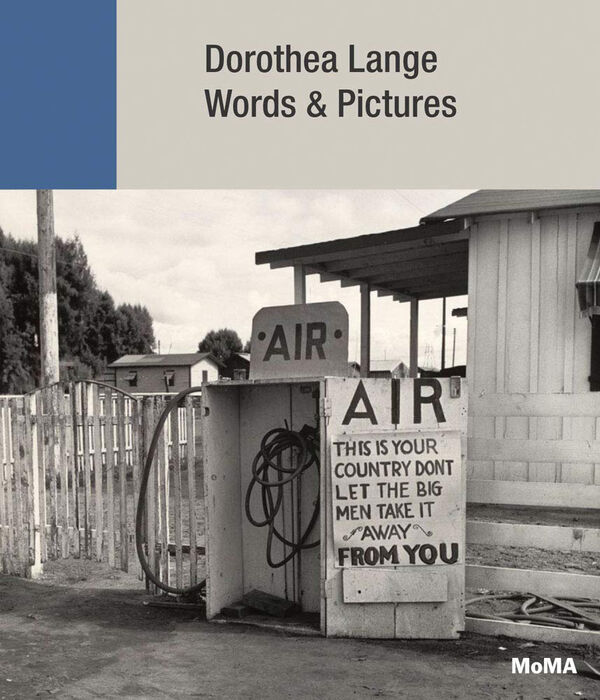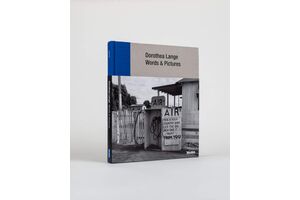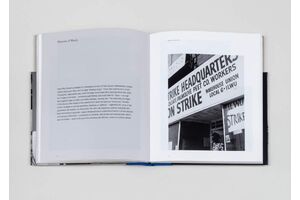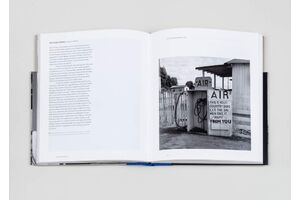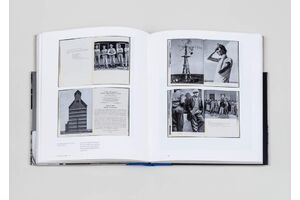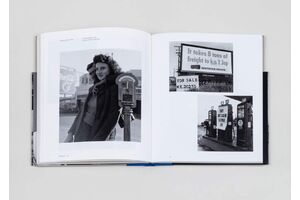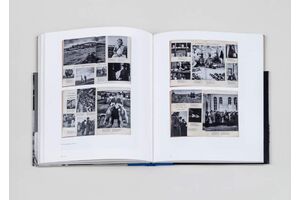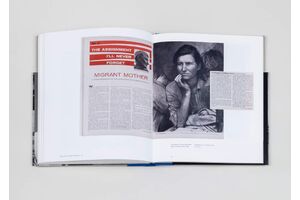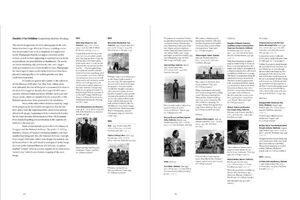Dorothea Lange – Words & Pictures
On the unique synthesis of word and image in Dorothea Lange's boldly political photography, which defined the iconography of WPA and Depression-era America.
Toward the end of her life, Dorothea Lange reflected, "All photographs--not only those that are so-called 'documentary'... can be fortified by words."
Though Lange's career is widely heralded, this connection between words and pictures has received scant attention. A committed social observer, Lange paid sharp attention to the human condition, conveying stories of everyday life through her photographs and the voices they drew in. Published in conjunction with the first major MoMA exhibition of Lange's in 50 years, Dorothea Lange: Words & Pictures brings fresh attention to iconic works from the collection together with lesser-known photographs--from early street photography to projects on the criminal justice system. The work's complex relationships to words show Lange's interest in art's power to deliver public awareness and to connect to intimate narratives in the world.
Presenting Lange's work in its diverse contexts--photobooks, Depression-era government reports, newspapers, magazines, poems--along with the voices of contemporary artists, writers and thinkers, the book offers a nuanced understanding of Lange's career, and new means for considering words and pictures today. An introductory essay by curator Sarah Hermanson Meister is followed by sections organized according to "words" from a range of historical contexts: Lange's landmark photobook An American Exodus, Life and Aperture magazines, an illustrated guide to minimize racism in jury trials, and many more. These contexts are punctuated with original contributions from a distinguished group of contemporary writers, artists and critical thinkers, including Julie Ault, Kimberly Juanita Brown, River Encalada Bullock, Sam Contis, Jennifer Greenhill, Lauren Kroiz, Sally Mann, Sandra Phillips, Wendy Red Star, Christina Sharpe, Rebecca Solnit, Robert Slifkin and Tess Taylor.
Dorothea Lange (1895-1965) operated a successful San Francisco portrait studio in the 1920s before going on to work with the Resettlement Administration (and later the Farm Security Administration) documenting the hardships of the Great Depression and Dust Bowl migration. During World War II, Lange worked for the US government photographing the Japanese American internment camps, and California's wartime economy. Lange's photographs were published widely during her lifetime. Lange worked closely with curator John Szarkowski on a retrospective that opened posthumously in 1966 at the Museum of Modern Art.
Toward the end of her life, Dorothea Lange reflected, "All photographs--not only those that are so-called 'documentary'... can be fortified by words."
Though Lange's career is widely heralded, this connection between words and pictures has received scant attention. A committed social observer, Lange paid sharp attention to the human condition, conveying stories of everyday life through her photographs and the voices they drew in. Published in conjunction with the first major MoMA exhibition of Lange's in 50 years, Dorothea Lange: Words & Pictures brings fresh attention to iconic works from the collection together with lesser-known photographs--from early street photography to projects on the criminal justice system. The work's complex relationships to words show Lange's interest in art's power to deliver public awareness and to connect to intimate narratives in the world.
Presenting Lange's work in its diverse contexts--photobooks, Depression-era government reports, newspapers, magazines, poems--along with the voices of contemporary artists, writers and thinkers, the book offers a nuanced understanding of Lange's career, and new means for considering words and pictures today. An introductory essay by curator Sarah Hermanson Meister is followed by sections organized according to "words" from a range of historical contexts: Lange's landmark photobook An American Exodus, Life and Aperture magazines, an illustrated guide to minimize racism in jury trials, and many more. These contexts are punctuated with original contributions from a distinguished group of contemporary writers, artists and critical thinkers, including Julie Ault, Kimberly Juanita Brown, River Encalada Bullock, Sam Contis, Jennifer Greenhill, Lauren Kroiz, Sally Mann, Sandra Phillips, Wendy Red Star, Christina Sharpe, Rebecca Solnit, Robert Slifkin and Tess Taylor.
Dorothea Lange (1895-1965) operated a successful San Francisco portrait studio in the 1920s before going on to work with the Resettlement Administration (and later the Farm Security Administration) documenting the hardships of the Great Depression and Dust Bowl migration. During World War II, Lange worked for the US government photographing the Japanese American internment camps, and California's wartime economy. Lange's photographs were published widely during her lifetime. Lange worked closely with curator John Szarkowski on a retrospective that opened posthumously in 1966 at the Museum of Modern Art.
Weitere Bücher von Dorothea Lange alle ansehen
